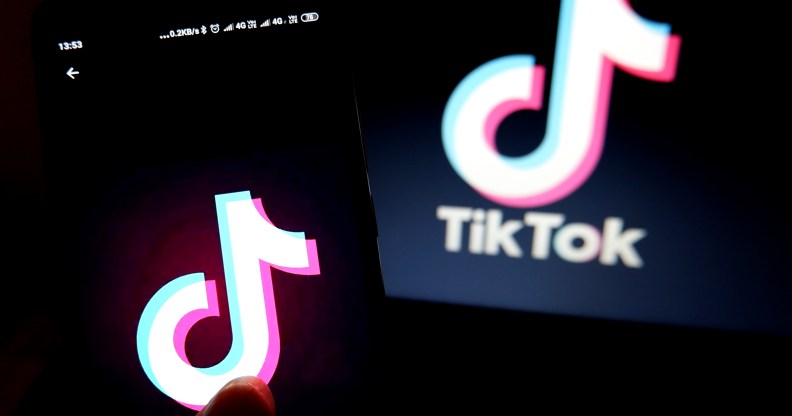TikTok admits it enacted a ‘shadow-ban’ censoring several LGBT+ hashtags, including #I am a gay/lesbian

TikTok (Avishek Das/SOPA Images/LightRocket/Getty)
TikTok has admitted to restricting LGBT-related hashtags in several languages and regions after being exposed by an Australian think tank.
The Australian Strategic Policy Institute (ASPI) found that TikTok was censoring the hashtags “gay,” “lesbian,” and “transgender” in Russian, Estonian, Bosnian, and Arabic, the terms “I am a gay/lesbian” in Russian, and “transgender” and “transitioning” in Arabic. This affected global users no matter where in the world they live.
The social media platform quietly restricted the content under a “shadow ban”, a stealth form of censorship in which a user may not be aware that they are being censored.
“TikTok users posting videos with these hashtags are given the impression their posts are just as searchable as posts by other users, but in fact they aren’t,” the report explained.
“In practice, most of these hashtags are categorised in TikTok’s code in the same way that terrorist groups, illicit substances and swear words are treated on the platform. On some occasions, hashtags are categorised as non-existent, when in fact they’re tagged on videos across the platform.”
The shadow ban even restricted an English phrase, “acab,” short for “all cops are b****rds,” a hashtag that trended during the Black Lives Matter uprising following the police killing of George Floyd.
In response to the report, a TikTok spokesperson claimed the social media platform is “deeply committed to inclusivity” and denied it was practicing censorship. They said the shadow ban was a “localised” approach to moderation.
Other LGBTQ+ related hashtags are completely blocked.
We posted a video to #GayArab but when we clicked on the hashtag, it redirected to a “#null” page. pic.twitter.com/3MjILPRKWE
— ?Fergus Ryan (@fryan) September 8, 2020
Some terms “were partially restricted due to relevant local laws,” while “other terms were restricted because they were primarily used when looking for pornographic content,” the spokesperson claimed. Other terms in English and Arabic were “incorrectly moderated,” they added.
“We are currently conducting a review of those terms that were moderated in error and will look for ways to improve our processes to avoid similar issues in the future,” they continued.
“In addition, we want to be crystal clear that TikTok strongly supports our LGBTQ creators around the world and is proud that LGBTQ content is among the most popular category on the platform with billions of views.”
It’s not the first time TikTok has admitted to censoring LGBT+ people: just last year the platform was revealed to be blocking pro-LGBT+ content in some conservative countries, even if homosexuality has never been illegal there.
In attempt to provide “locally sensitive” moderation the app went substantially further than it was required to by law, banning any content that could be seen as positive to LGBT+ people – even same-sex couples holding hands.
At the time TikTok recognised “the need to do more” and claimed it was actively working with local third parties to ensure its processes are more appropriate – but it appears it still has a long way to go.

